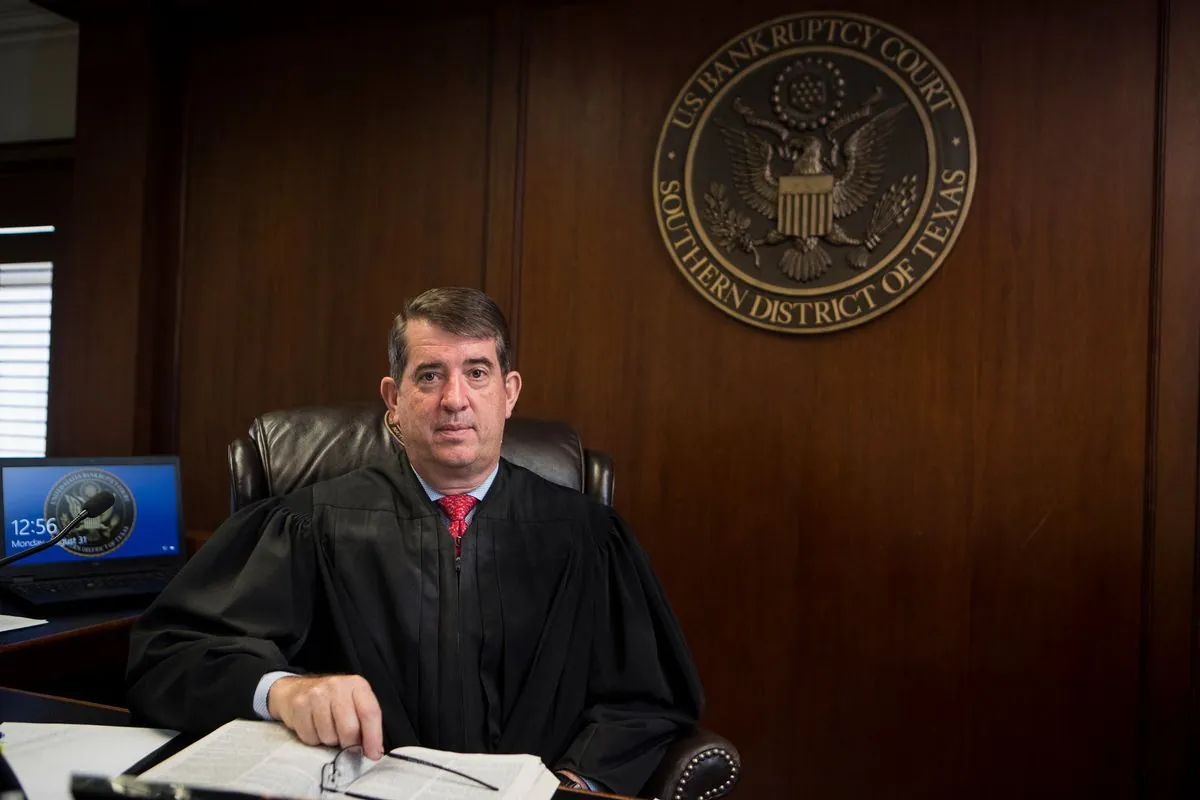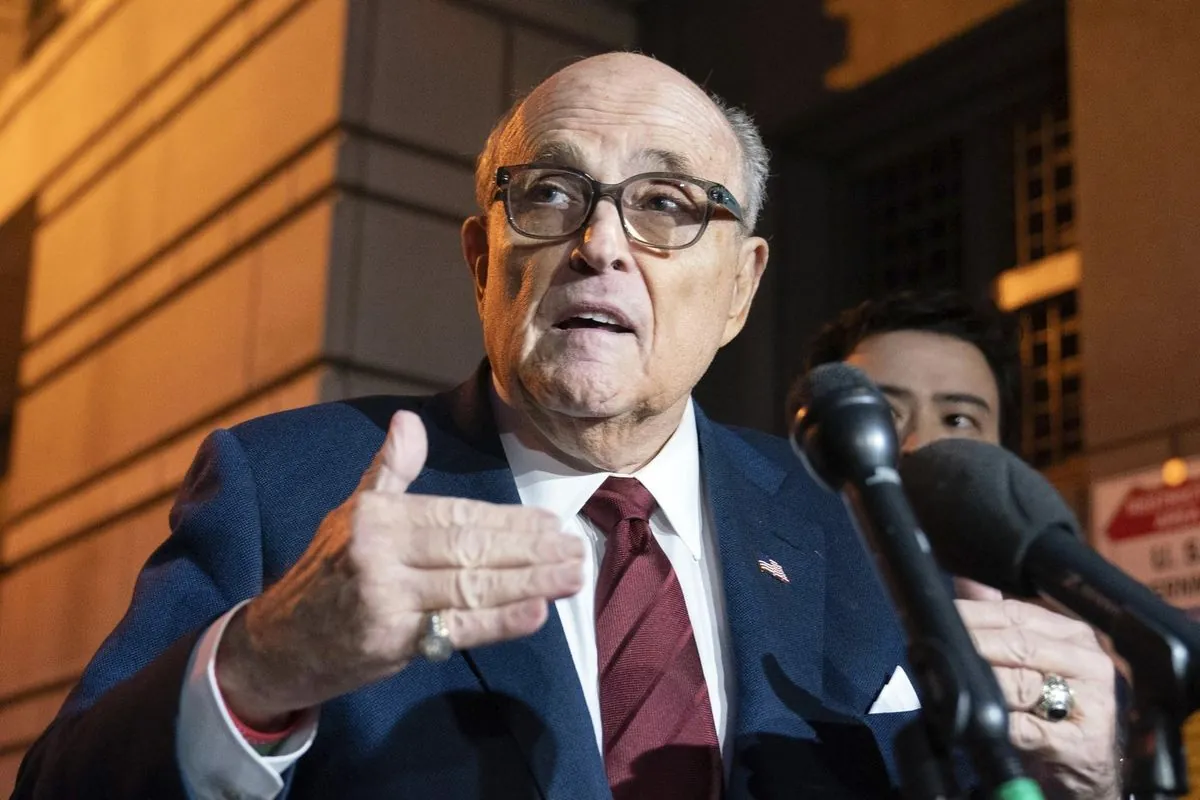Ex-Judge Admits Criminal Probe Amid Relationship Controversy
Former U.S. bankruptcy judge David Jones confirms criminal investigation during hearing about undisclosed romantic relationship. Case raises concerns about judicial ethics and transparency in bankruptcy proceedings.

David Jones, a former U.S. bankruptcy judge, has acknowledged being under criminal investigation during a recent court hearing. The proceeding, which took place on August 7, 2024, in Houston bankruptcy court, centered around Jones' previously undisclosed romantic relationship with a Houston bankruptcy lawyer, Liz Freeman.
The case has brought to light significant concerns regarding judicial ethics and transparency in bankruptcy proceedings. The U.S. Trustee Program, a component of the Department of Justice responsible for overseeing bankruptcy cases, initiated litigation against Jackson Walker, Freeman's former law firm. The U.S. Trustee argues that the firm was aware of the relationship but remained silent to continue collecting legal fees from cases in Jones' court.
Jones, who resigned from the bench in October 2023 after admitting to sharing a home with Freeman, attempted to explain his actions during the hearing. He expressed concern about potential embarrassment and legal expenses resulting from questions he believed were unrelated to the fee dispute with Jackson Walker.

The case has raised important questions about judicial authority and the inner workings of the courts. Judge Eduardo Rodriguez, who presided over the hearing, expressed concern about the potential impact on judicial authority if former judges and their clerks were subjected to extensive questioning about court operations.
Jones' situation highlights the importance of judicial recusal and adherence to ethical guidelines. The Code of Conduct for United States Judges provides clear ethical standards for federal judges, including the requirement to disqualify themselves from cases where they have a personal interest or bias.
The controversy surrounding Jones has had far-reaching implications. Prior to his resignation, he was considered one of the busiest bankruptcy judges in the U.S., overseeing high-profile cases such as JCPenney, Neiman Marcus, Party City, and Chesapeake Energy. These companies filed for bankruptcy between 2020 and 2023, during a period of significant economic upheaval.
The case also sheds light on the complex structure of the U.S. bankruptcy court system, established by Congress in 1978. Bankruptcy judges serve 14-year terms and are appointed by the United States Court of Appeals for their respective circuits. The Houston bankruptcy court, where Jones presided, is part of the Southern District of Texas.
As the investigation continues, the legal community and public alike are closely watching the outcome. The case serves as a reminder of the critical importance of maintaining judicial integrity and transparency in the bankruptcy process, which affects countless individuals and businesses across the nation.
"My relationship has been the subject of misinformation everywhere. It has caused, and I'm not asking for sympathy, it has caused an immense amount of embarrassment. It's affected my relationship. It's done a lot of very negative things. And most of it's simply wrong."
The ongoing criminal investigation and related legal proceedings will likely have significant implications for judicial conduct and oversight in bankruptcy cases. As the situation unfolds, it underscores the need for robust ethical guidelines and enforcement mechanisms to maintain public trust in the judicial system.


































